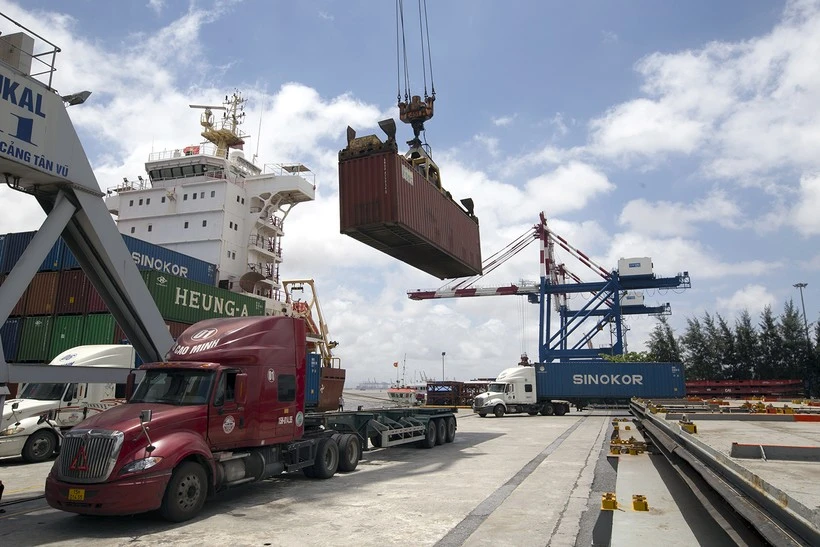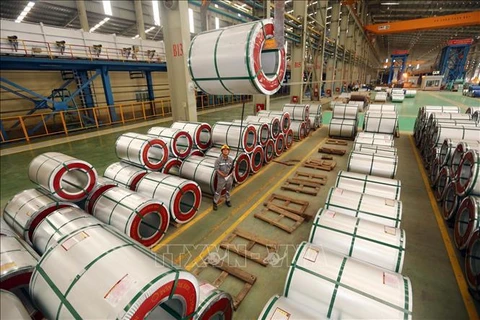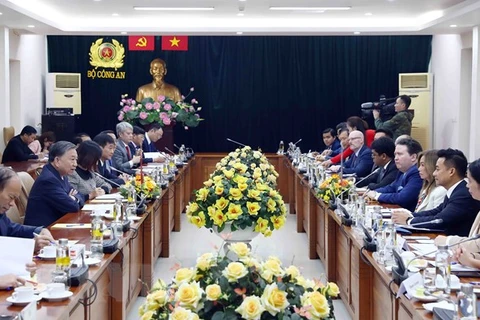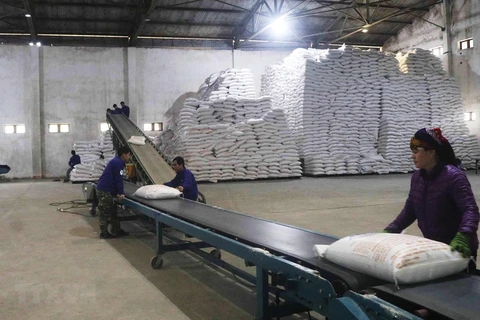
Hanoi (VNA) – The rise in trade remedy investigations against Vietnam’s exports has come from the country’s effective optimisation of free trade agreements (FTAs) to increase exports.
A report by the Ministry of Industry and Trade (MoIT) showed that by the end of April 2024, Vietnam's exports faced 249 trade remedy investigations from 24 markets. The investigated items with large export turnover include wooden cabinet, plywood, solar battery, shrimp, pangasius, basa, high-pressure washing sprayer, foam pad, lawn mower, cigarette wrapper, EPS plastic resin, and honey.
Statistics from Trademap showed that Vietnam's steel wire export to Canada has increased rapidly in recent years. In 2020, Vietnam exported about 10 million USD of steel wires to the country. The figure doubled to 21 million USD in 2021 and continued to grow strongly to about 40 million USD in 2022.
The absolute increase in value was one criteria for Canada to investigate and apply trade remedies to Vietnam's steel wires. Most recently, on April 24, the US Department of Commerce (DOC) received a request for anti-dumping and anti-subsidy investigations on solar panel products imported from Thailand, Malaysia, Cambodia and Vietnam.

Currently, Vietnamese goods have been present in many markets with specific requirements on goods quality and food safety. Vietnam has gradually become self-reliant in a number of foundation industries to reduce dependence on foreign raw materials. As a result, Vietnam's exports have overcome technical barriers and trade remedies, which become one of the few remaining tools that importing countries can use for the purpose of restricting imports.
Trinh Anh Tuan, General Director of Trade Remedy Department under the MoIT, revealed that the US recently issued a policy allowing transnational subsidy investigations. The policy targets processing industries with many input materials.
Accordingly, if Vietnam buys raw materials for production from a third country and this country subsidizes the production of this raw material, it will be taxed when exported. In addition to the US, the EU is also studying the application of this policy.
The ministry acknowledged that the participation in regional supply chains has caused Vietnam to become a country that is often investigated jointly with a number of other countries such as China and Indonesia. These countries have large export turnover, and they are regularly investigated for trade remedies or suspected of illegal transshipment in order to evade trade remedy duties.

Competent authorities’ support for businesses in the process of handling foreign trade remedy investigations has brought in positive results. Many of Vietnam’s cases have proven that enterprises do not dump or the Government does not subsidize or interfere in the market to create unequal advantages for exporting enterprises.
Businesses have full and immediate access to trade remedy information. Most businesses are not found to be uncooperative, leading to high tax rates.
In addition, the ministry has closely monitored the investigation process of foreign investigative agencies. It regularly has legal arguments to counter when detecting possible violations of the WTO and international investigative practices, and ensures manufacturing and exporting enterprises have the opportunity to exercise corporate rights in trade remedy cases./.






















